Breastfeeding positions for comfort and attachment
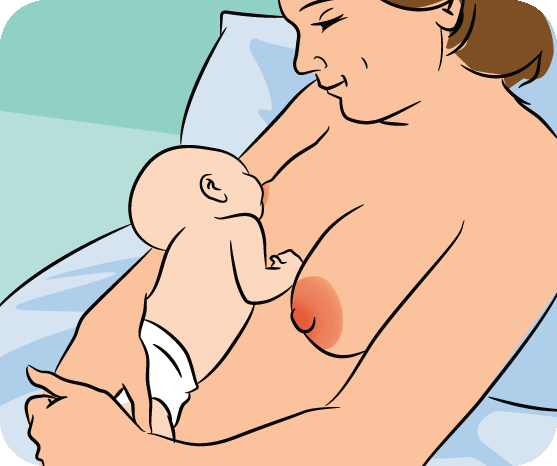
When you’re learning to breastfeed, it’s best to start with baby-led attachment. Sit with your back well supported. Lean back and get comfy. Lie your baby between your breasts, skin to skin, supported by your arms. Your baby will move towards one breast and start feeding. Make sure your baby’s nose is clear of your breast.
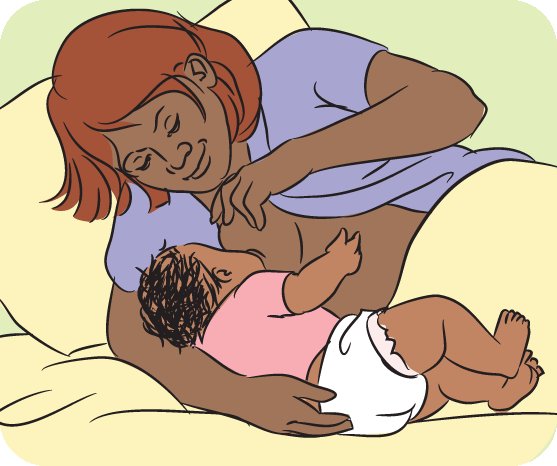
If you’ve had a caesarean, you can still do baby-led attachment. Lie on one side and hold your baby behind their back and shoulders, but leave their head free to move. Keep your baby’s feet angled away from your wound.

You can do mother-led attachment. Sit upright in a chair with good back support. Hold your baby along your forearm, in line with the natural fall of your breasts. Hold your baby behind their back, shoulders and bottom, but leave their head free to move. Bring your baby to your breast, with your baby’s nose just above your nipple. Make sure your baby’s nose is clear of your breast.
Breastfeeding positions to try

Once you’re going well with breastfeeding, you can try more breastfeeding positions. This is the classic front hold or cradle position, often used with mother-led attachment.
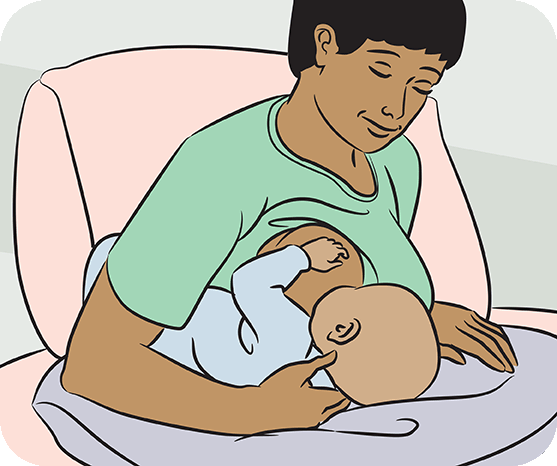
Here’s the underarm position or football hold. Tuck your baby close to your body, under your arm. Use a pillow for support. This position is good if you’re feeding twins together, you’ve had a caesarean, or you have sore nipples.
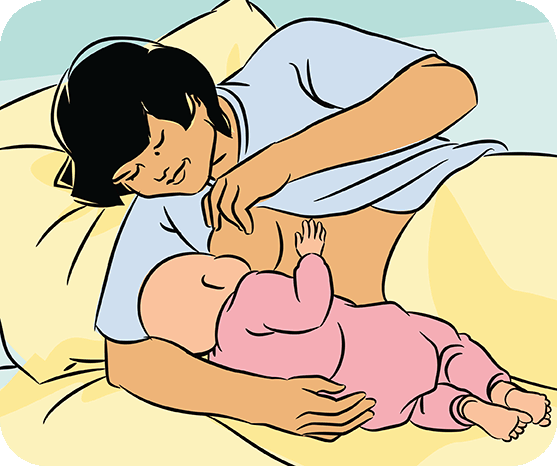
The lying down position is good for night feeds and afternoon rests or for mothers who’ve had a caesarean. If you might fall asleep while feeding, plan how to stay awake. You could set a recurring 2-minute alarm.
More options and ideas for breastfeeding
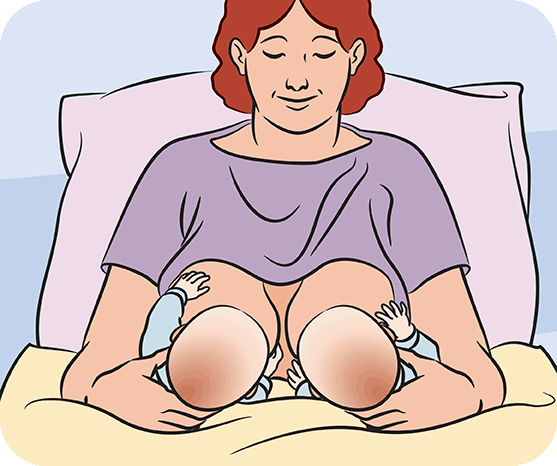
In the first weeks, it can often be easier to feed twins separately. But soon you can try feeding them together in the twin hold. Some mothers feed separately, others together, and most do a mix.
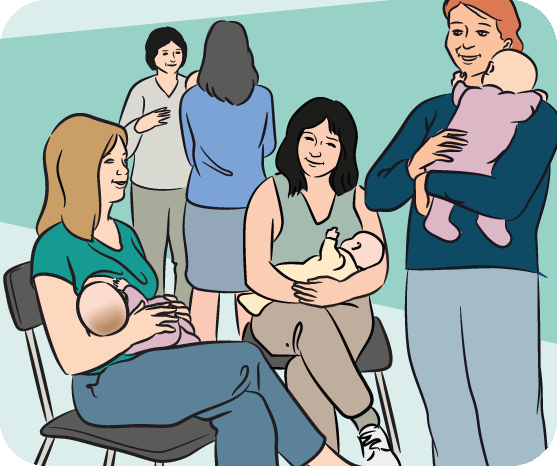
If you want to breastfeed when you’re out, you could practise at a mothers group, a local ABA support group or with friends and family. It’s your legal right to feed your baby in any place at any time.
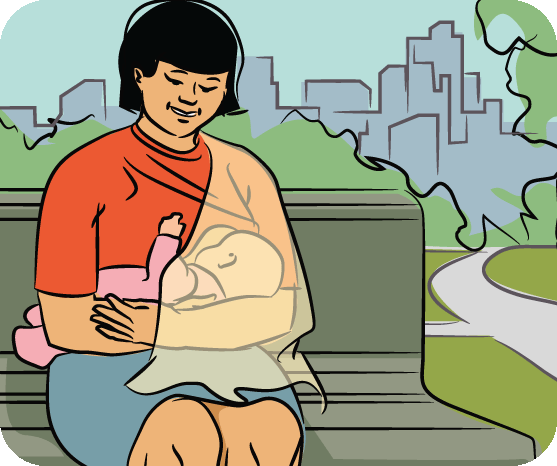
Breastfeeding in public gets easier with practice. It can help to wear a top that you can lift for feeding. If your baby doesn’t mind being covered, you could put a light scarf or cloth over your shoulder while you feed.
Languages other than English
- Arabic (PDF: 627kb)
- Dari (PDF: 626kb)
- Dinka (PDF: 639kb)
- Hakha Chin (PDF: 578kb)
- Karen (PDF: 624kb)
- Persian (PDF: 449kb)
- Simplified Chinese (PDF: 642kb)
- Swahili (PDF: 596kb)
- Tamil (PDF: 608kb)
- Vietnamese (PDF: 635kb)